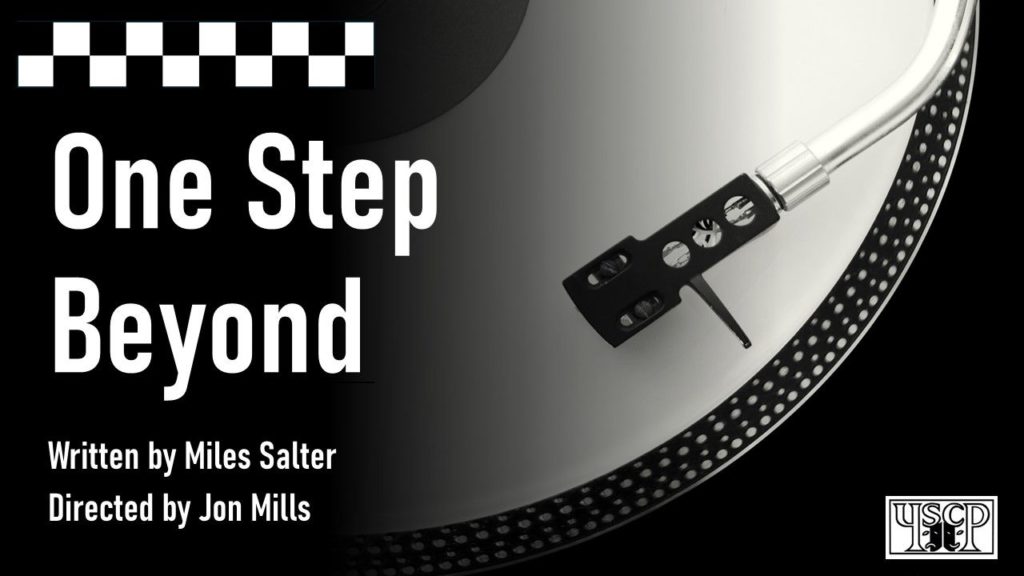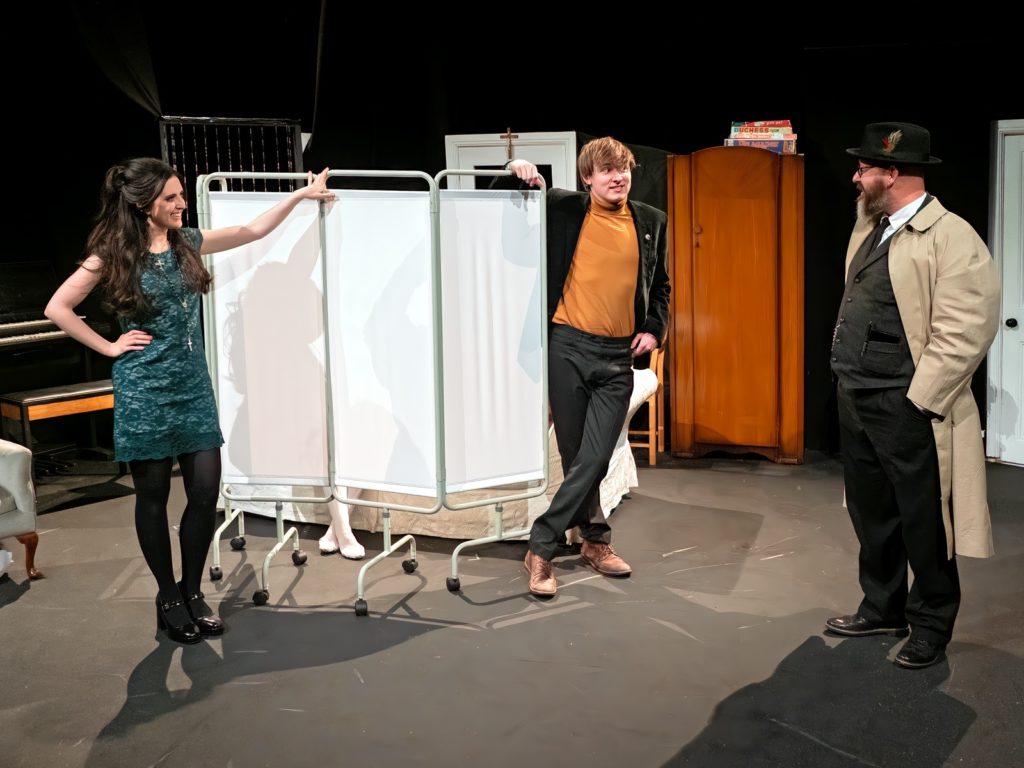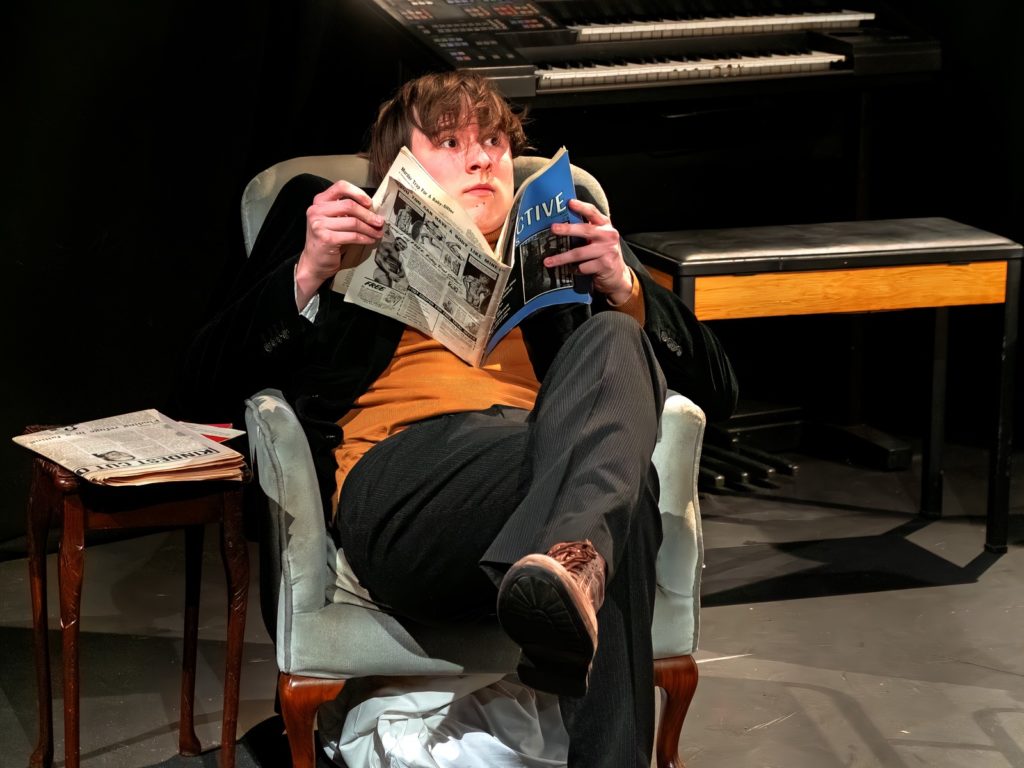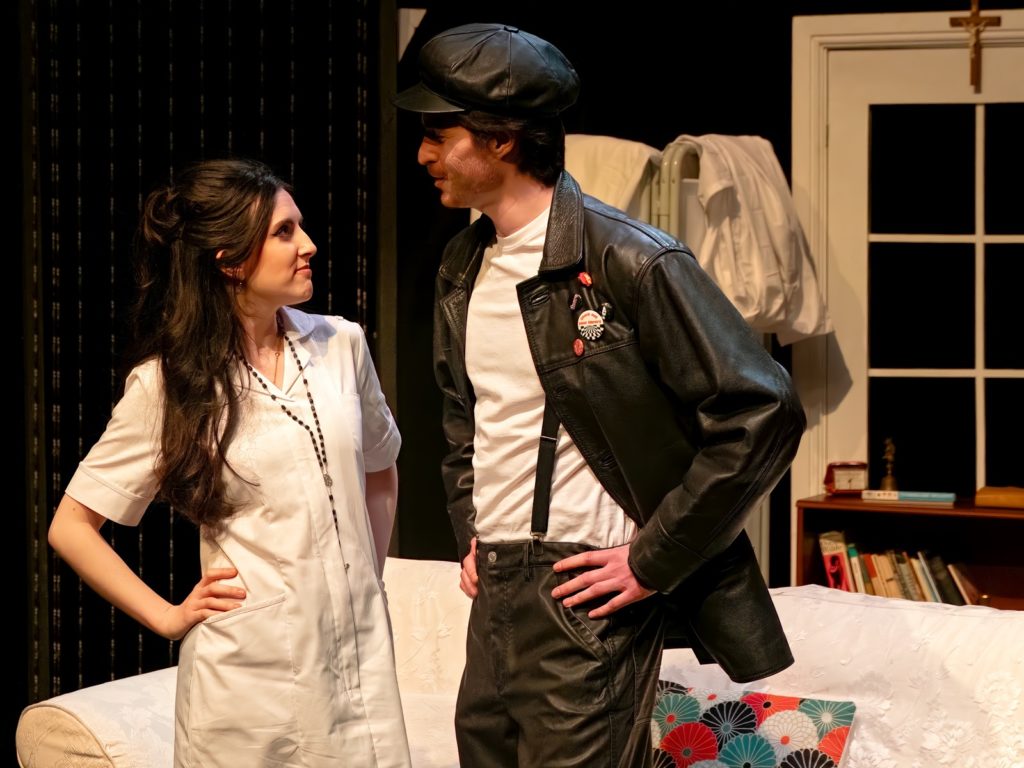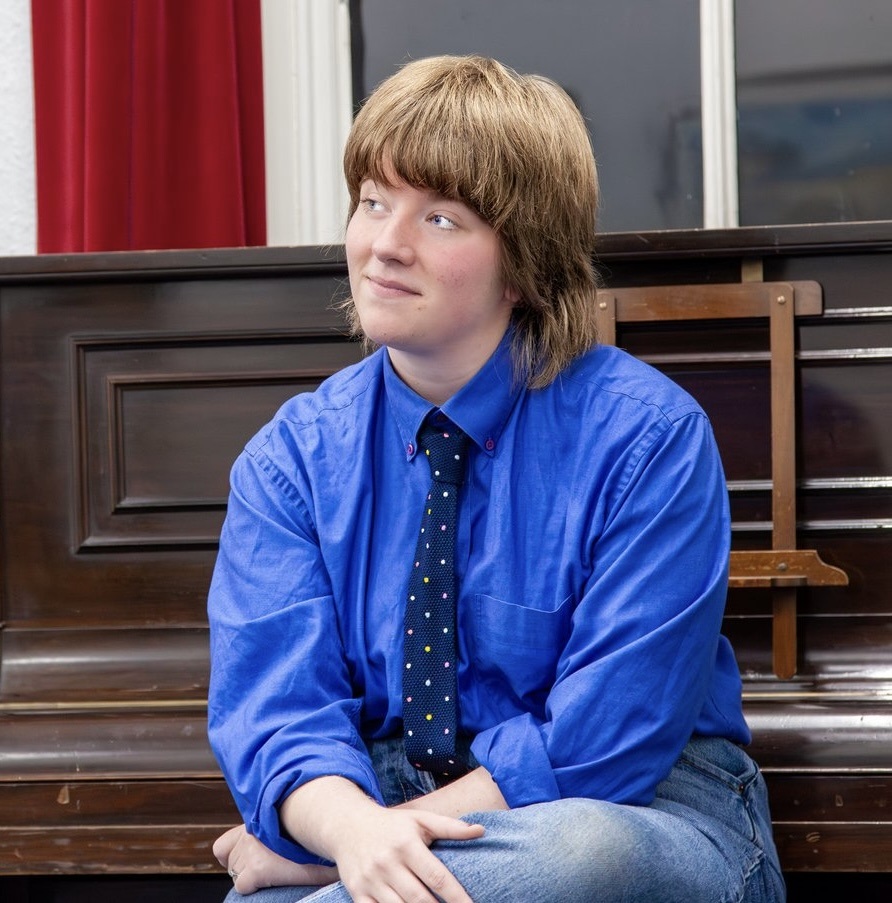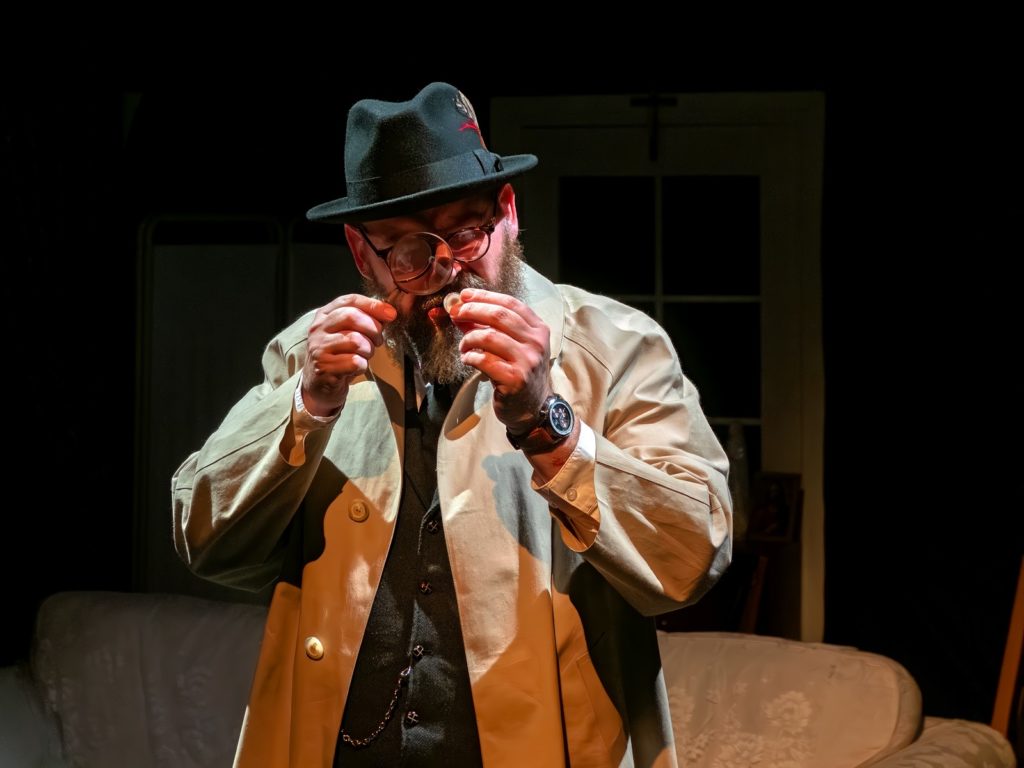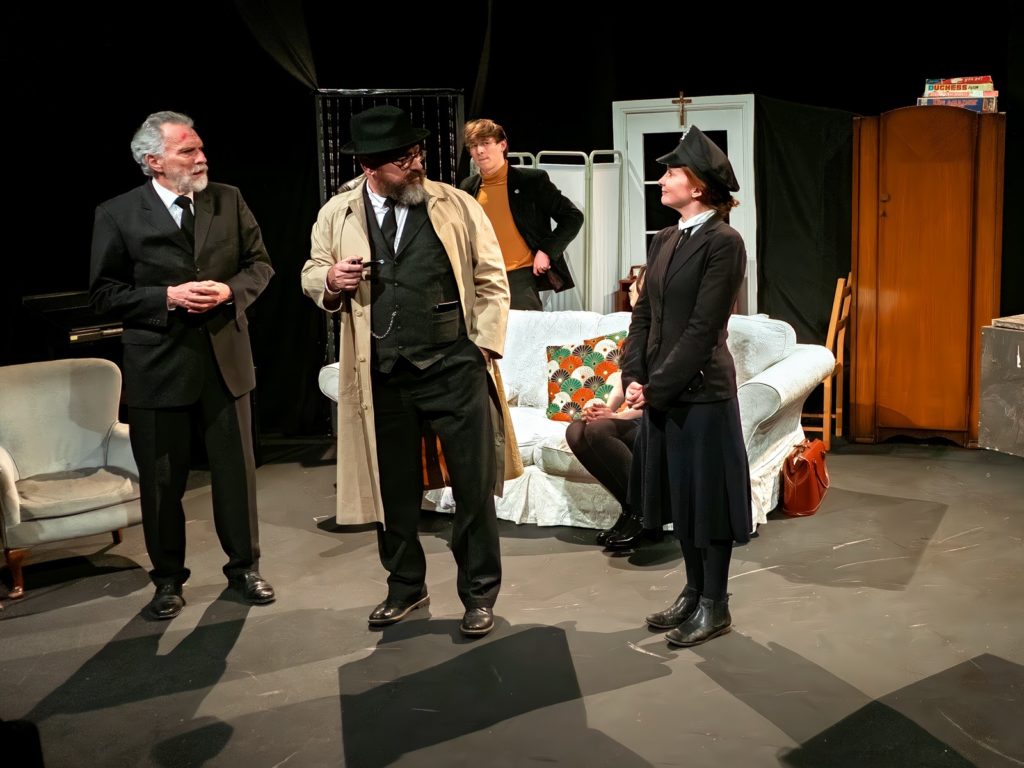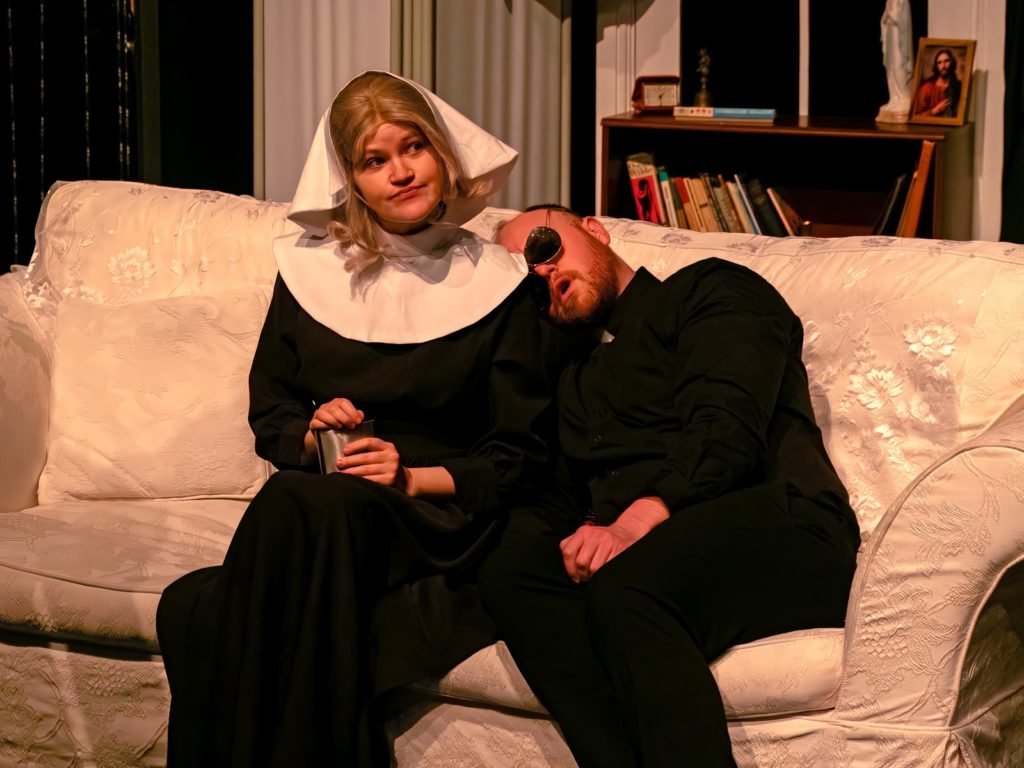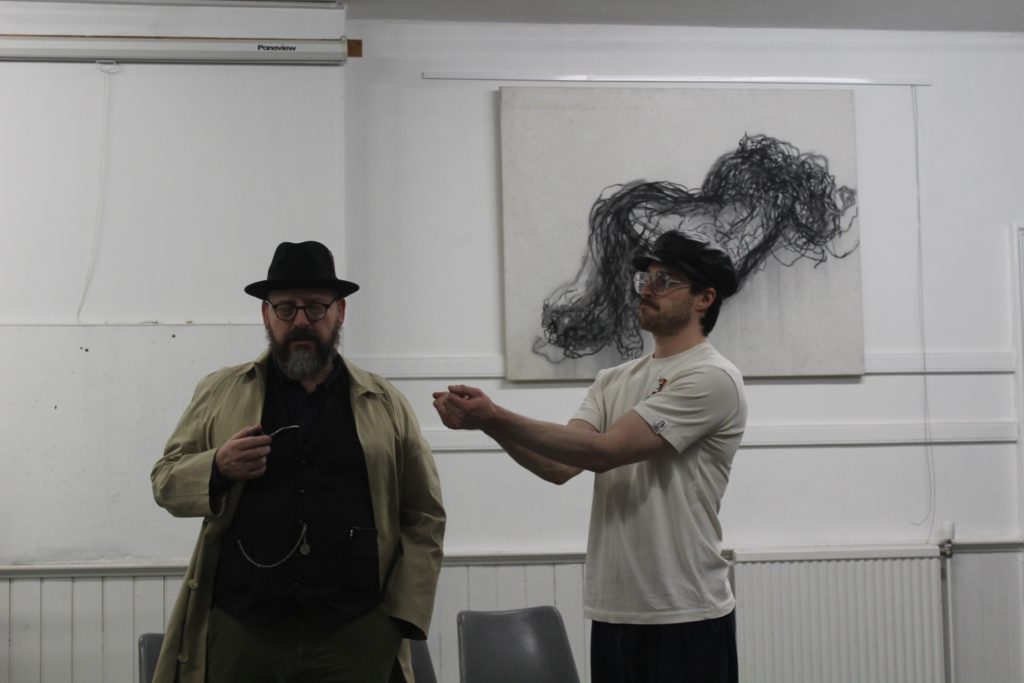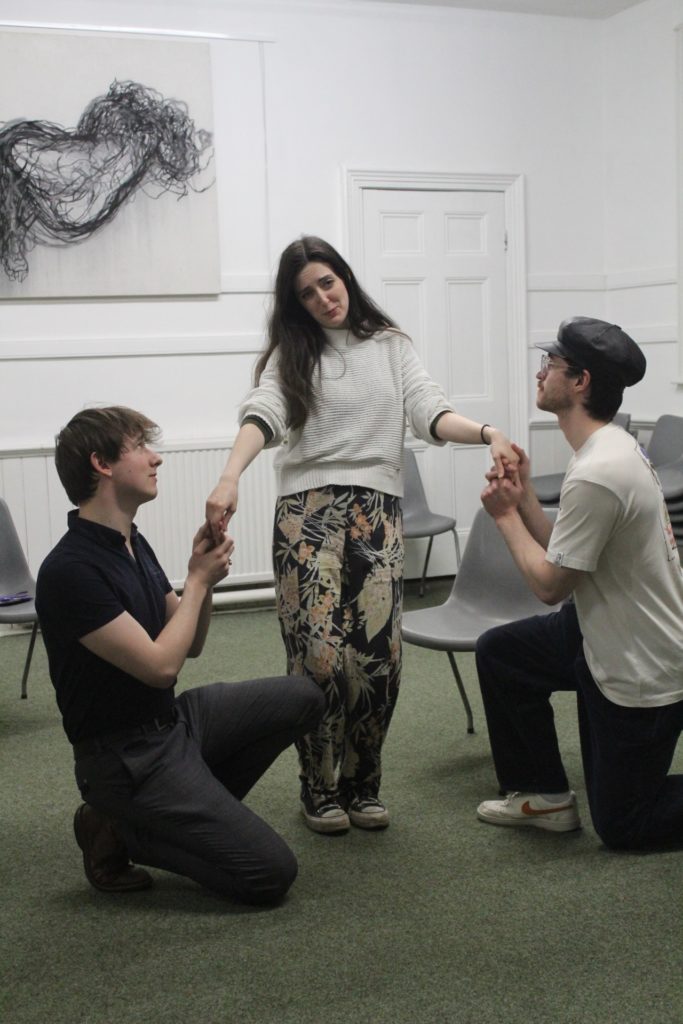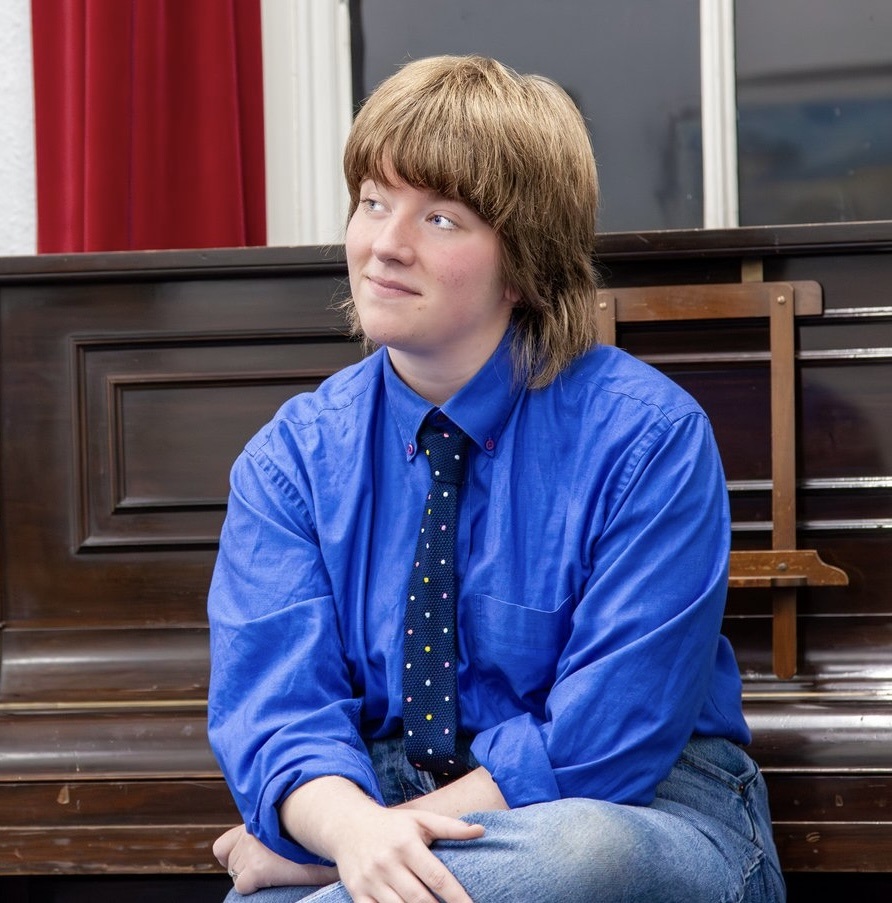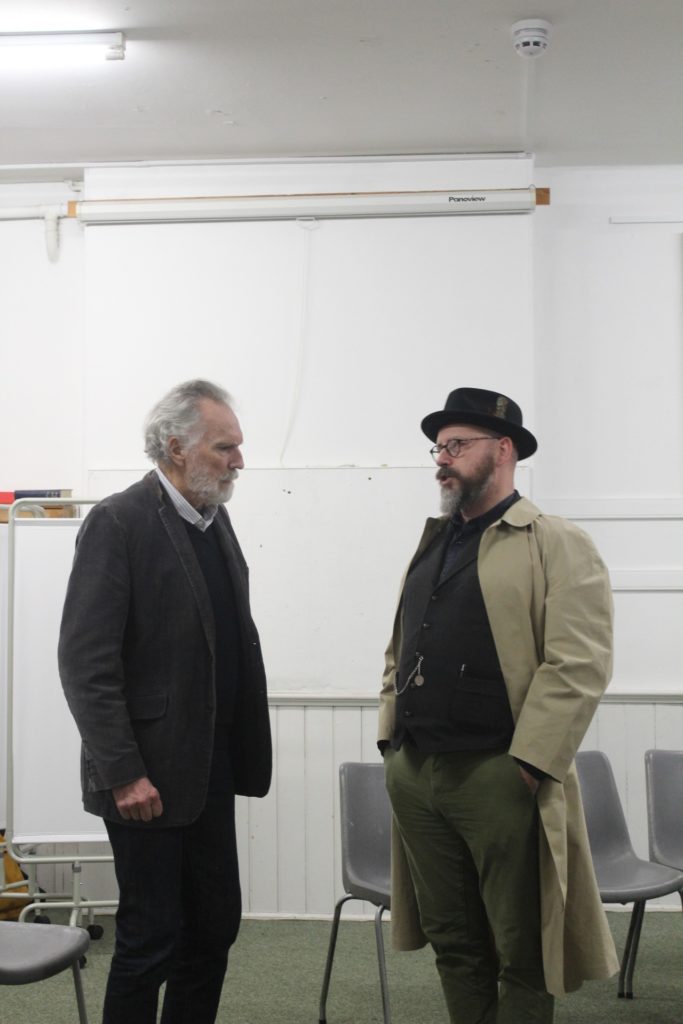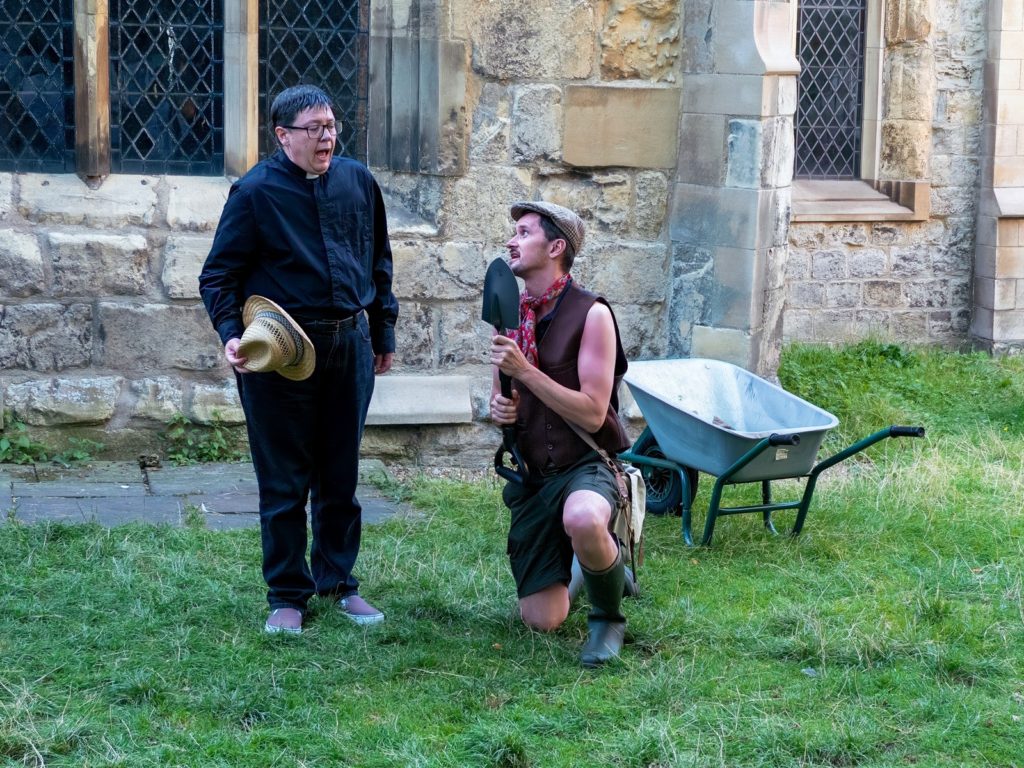
Harry Summers’ Reverend Planter and Stuart Lindsay’s Doug O’Graves in York Shakespeare Project’s Sonnets In Bloom at Holy Trinity, Goodramgate, York. All pictures: John Saunders
SONNETS In Bloom 2025 is the ninth iteration of York Shakespeare Project’s summer sonnet celebration. Make that Sonnets In Full Bloom at the flower fete in the churchyard of Holy Trinity, Goodramgate, where the emphasis is on the new.
New director, Josie Connor; new scenario writer Natalie Roe; nine debutants among the 12 sonneteers; seven Shakespeare sonnets making their YSP bow among the 13 featured here.
Welcomed with a complimentary drink, the audience takes its place on benches and seats arranged in circular fashion around the churchyard, to the muffled accompaniment of evening street sounds from Goodramgate’s restaurants and bars.
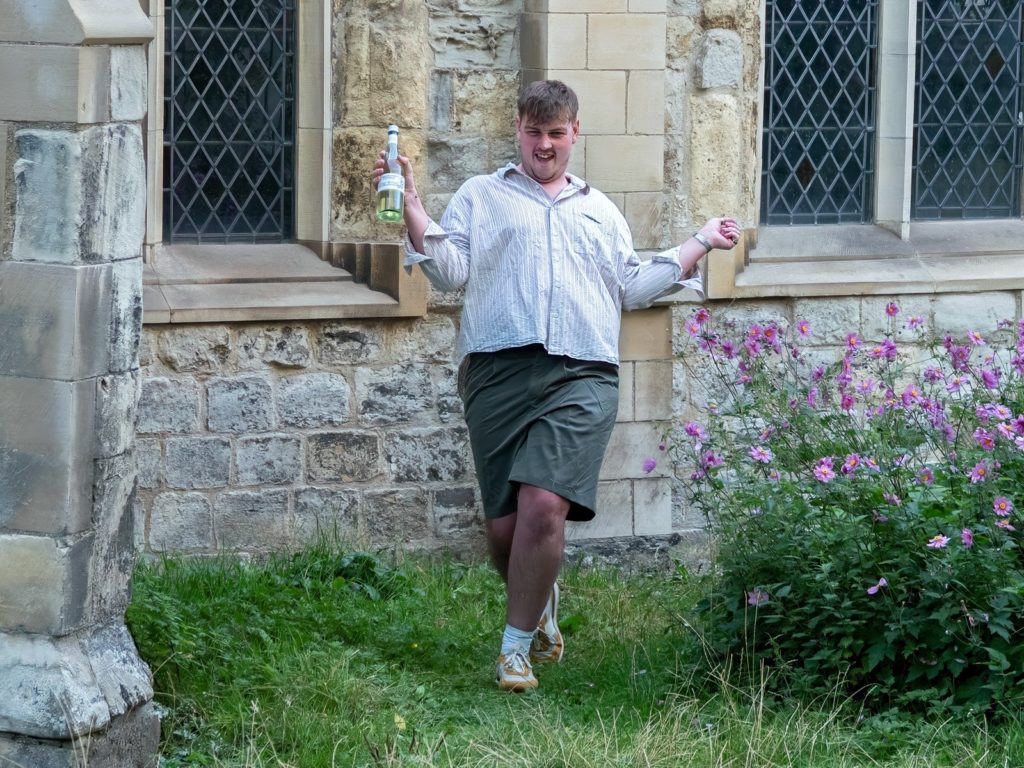
Oliver Taylor’s broken-hearted forager Arti Choke
YSP’s Sonnets have taken myriad forms: sonnet walks around the city centre and Dean’s Park; sit-down sonnets under Covid social distancing; sonnets in the Bar Convent gardens. Holy Trinity, favourite York church of the loved-up Anne “Gentleman Jack” Lister, has been a regular host, and this time war, more than love, is in the air.
More specifically, an alternative version of the war of the roses breaks out among the competitors in a fractious regional leg of Summer In Bloom. Given the profusion of puns among Roe’s humorous character names, perhaps it could be renamed Punfight At The OK Floral. Hoe hoe.
First of those horticultural names is the cactus-loving Reverend Planter (Sonnets’ debutant Harry Summers in genial mood), who will oversee the “arrival of participants with their prized entries, some more competitive than others. But where is the special guest? And who will win the People’s Vote?” All in good time, all in good time, although all will be revealed within a fast-moving hour.
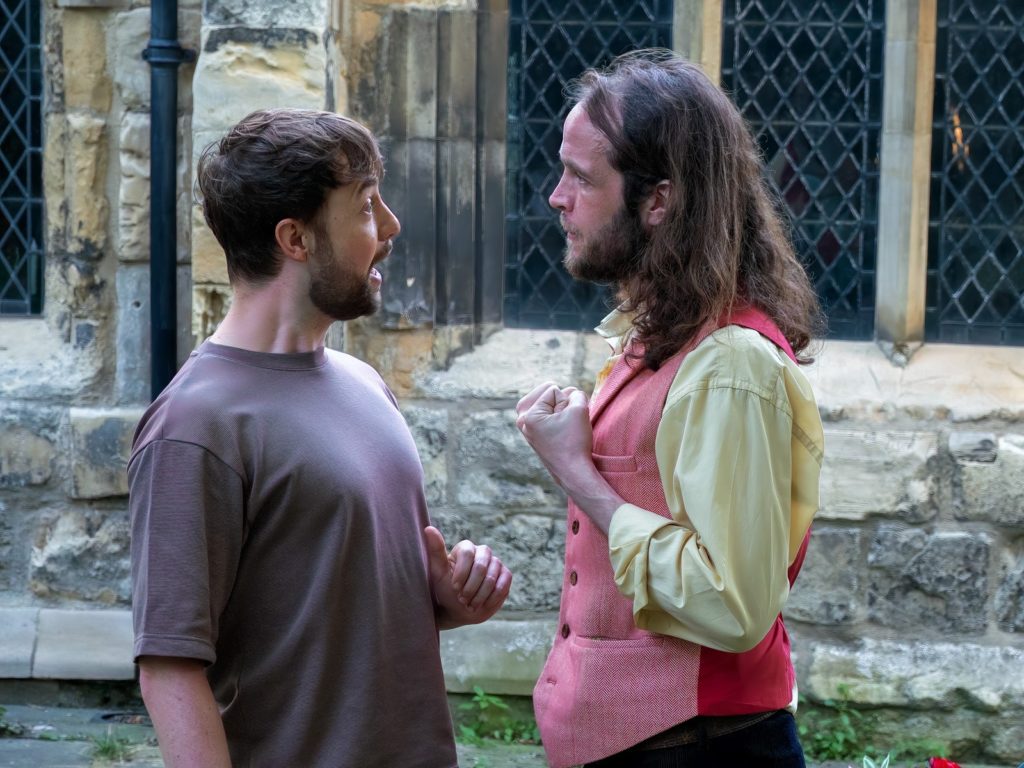
Difference of opinion: Tom Langley’s Ally Lottment, left, and Benjamin Rowley’s Pete Shoveller clash in Sonnets In Bloom
Under YSP’s format, each colourful character will move seamlessly from amusing introductory scene/mood/motive-setting chatter – either with a fellow character or breaking down theatre’s fourth wall in direct address to Rev Planter’s flock – to performing an apt sonnet from Shakespeare’s repertoire of 154. In the vicar’s case, “When I Consider Everything That Grows”.
The sonnets, the characters, the names, keep a’coming. Next, James Tyler’s Tom Martow, proud Yorkshire marrow connoisseur (“to marrow, and to marrow, and to marrow”). Then Stuart Lindsay’s gravely serious Scottish sexton Doug O’Grafves, dour digger of depths and confirmed misanthropist.
Next comes the interplay of returnee Grace Scott’s May Blooms, fantastic flower arranger and generational rose grower; Lily Geering’s Lily White, unfailing friend to May; Benjamin Rowley’s Pete Shoveller, poet and patient but tongue-tied pursuer of Lily, and Sonnets returnee Emilie Knight’s Rose Thorn, May’s ruthless rival. Annie Dunbar’s Blossom Springs, conscience-stricken apprentice to Rose, becomes entangled in the floral furore too.
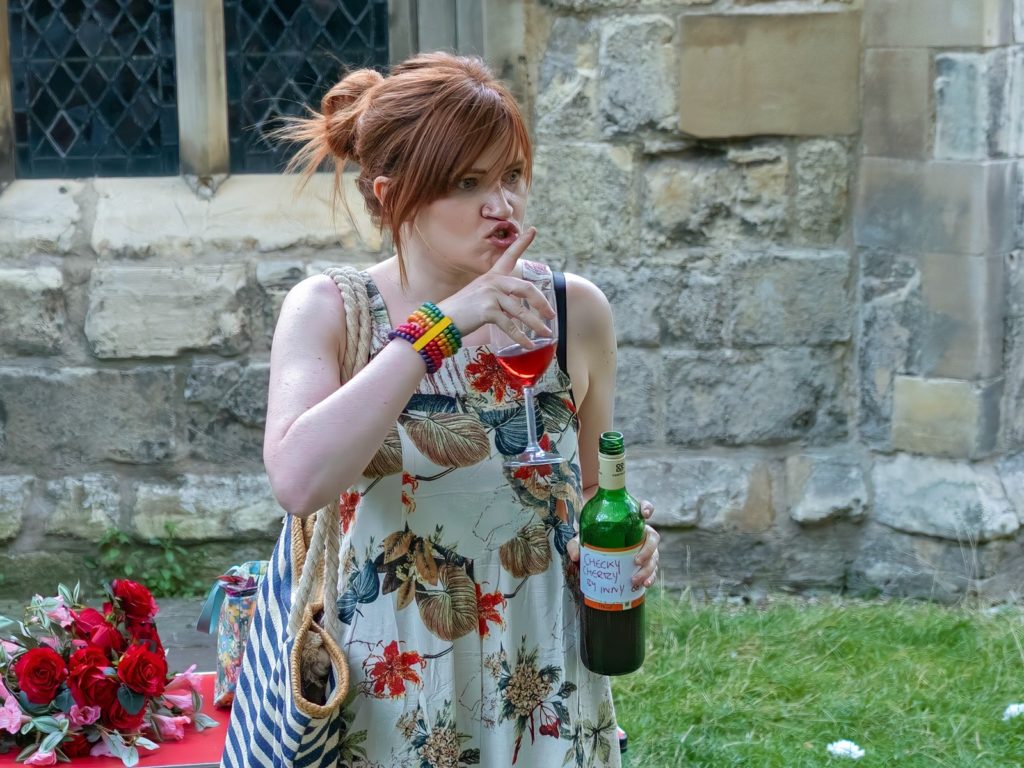
Tipsy-topsy-turvy encounter with wine: Xandra Logan’s Inny Briation
Bubbling away is the intrigue of the appearance/non-appearance of Stuart Green’s Freddie Firm-Carrot, celebratory gardening superstar. In a running joke, Tom Langley’s Ally Lottment, disdainful PA to Firm-Carrot, keeps being mistaken for his absent boss, before Firm-Carrot turns up at last, his lack of interest in his brief for the day indicated by calling Goodramgate “Goodramsgate”.
Debutant Oliver Taylor catches the eye with his lovelorn Arti Choke, kitchen warlock and broken-hearted forager, while returnee Xandra Logan makes the most of the boozed-up indiscretions of Inny Briation, home winemaker and anywhere, anytime wine-drinker.
Connor directs with momentum and a sense of mischief, matching the fun in Roe’s script, and fittingly the whole cast assembles for the final sonnet, delivering one line each of “That Time Of Year Thou May’st In Me Behold”, book-ended by a joint first and last line in a communal floral finale.
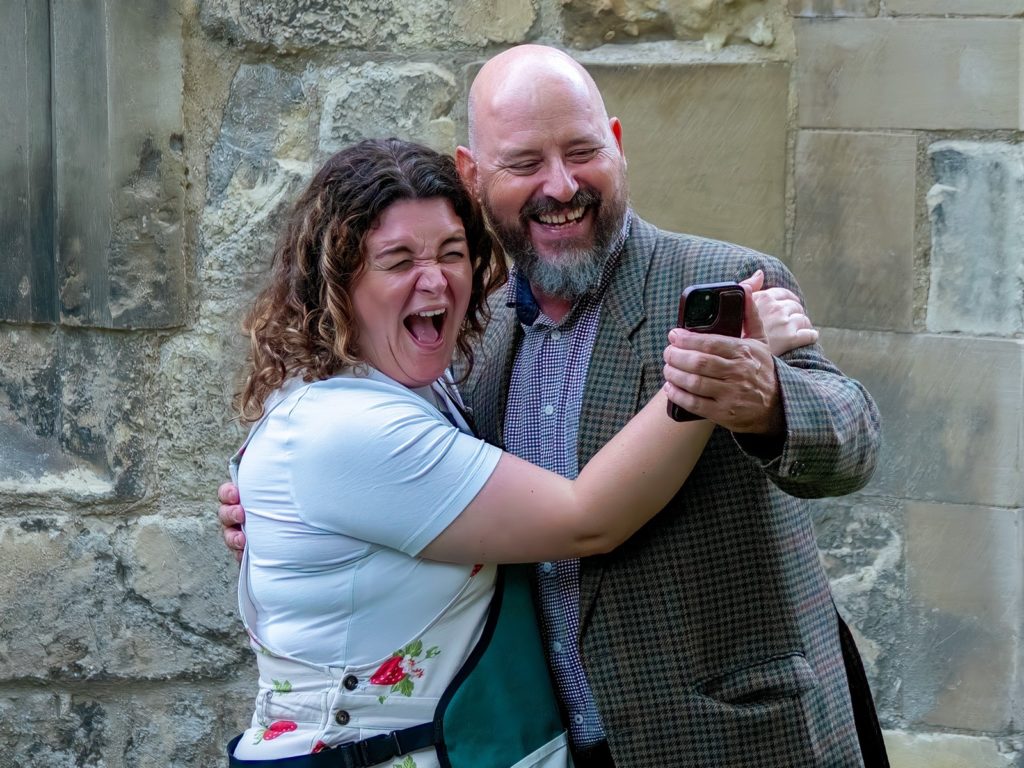
Celebrity selfie: Grace Scott’s May Blooms with Stuart Green’s gardening superstar Freddie Firm-Carrot
Coming next from YSP after this summer’s display of flower power will be Thomas Kyd’s The Spanish Tragedy, “the play that outsold Shakespeare”, at Theatre@41, Monkgate, York, from October 22 to 25 (box office, tickets.41monkgate.co.uk
York Shakespeare Project in Sonnets In Bloom, Holy Trinity churchyard, Goodramgate, York, tonight, 6pm and 7.30pm; tomorrow, 4.30pm, 6pm and 7.30pm.
Box office: 01904 623568; https://www.yorktheatreroyal.co.uk/show/sonnets-in-bloom-2025/; in person from York Theatre Royal box office. Price, including a drink: £10 or £5 for age 14 to 17.
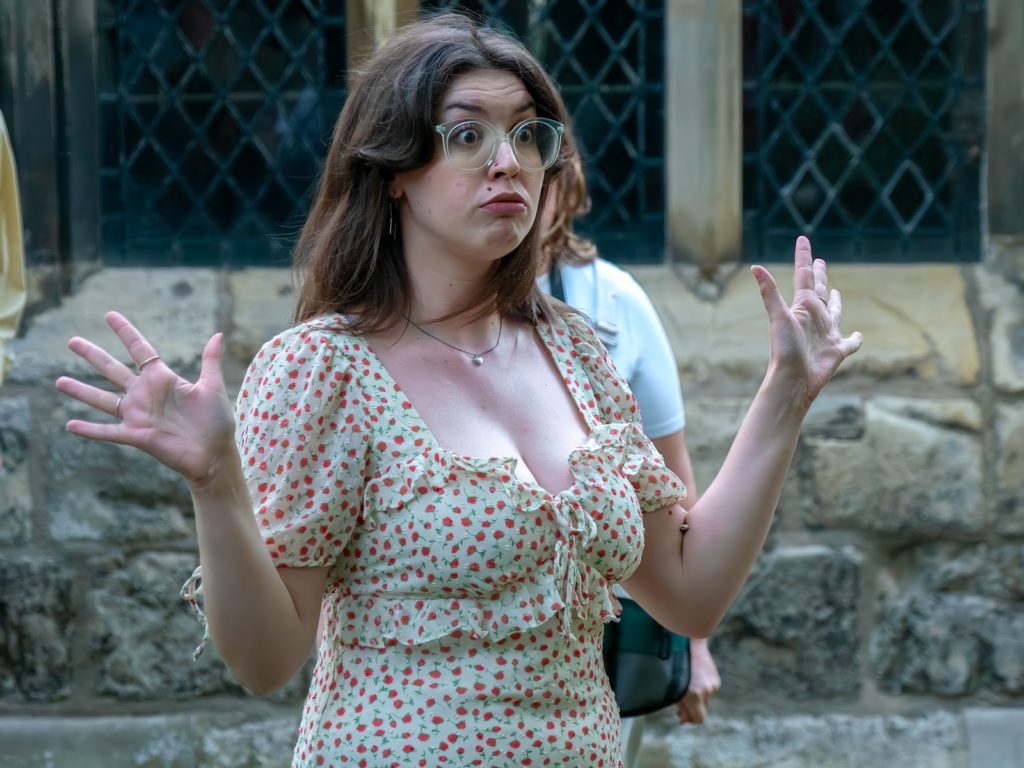
Lily Geering’s Lily White, unfailing friend to May Blooms in Sonnets In Bloom



